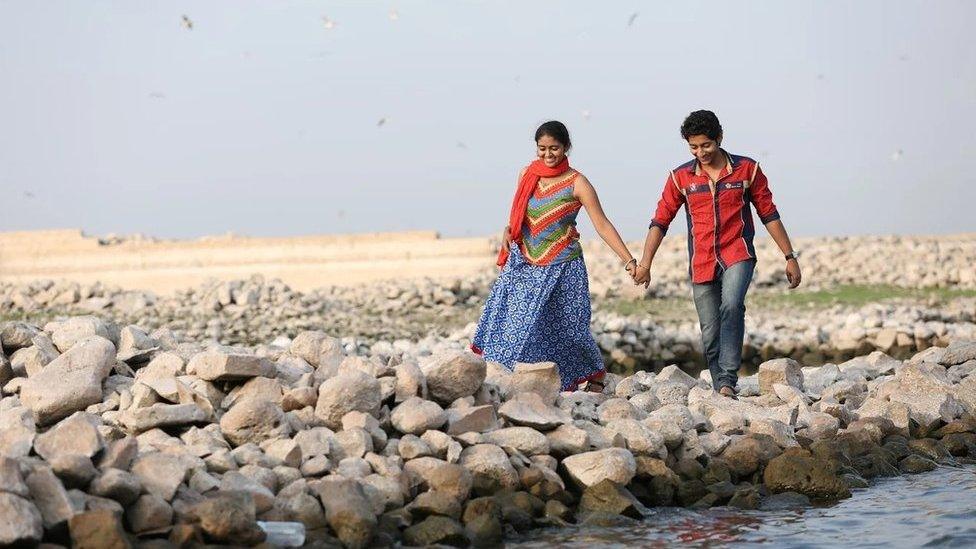Why this Bollywood film on middle-age love is unusual
- Published
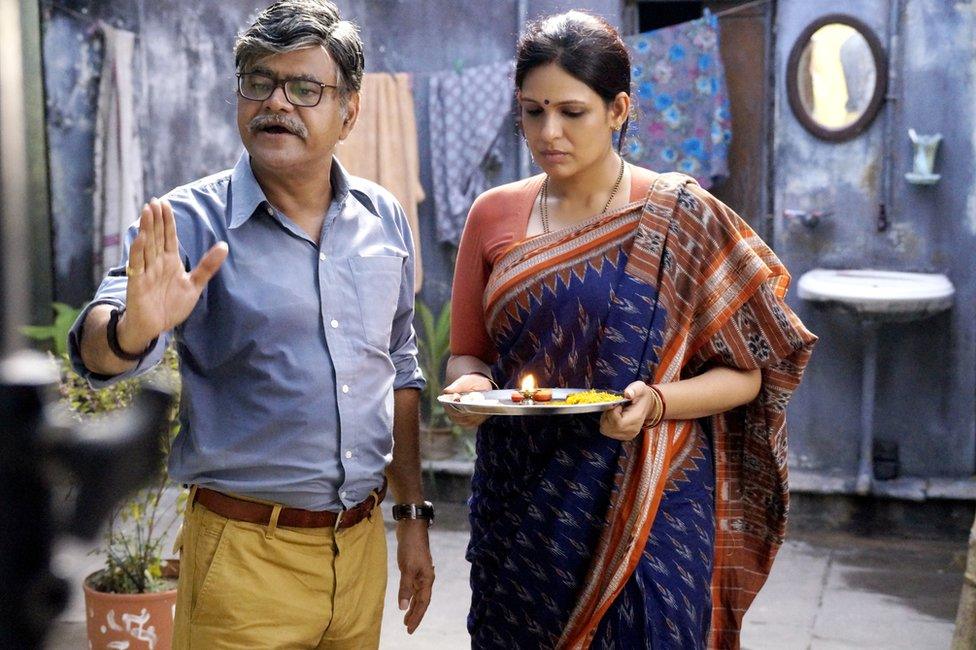
The atypical love story struck a chord with many
A recent Bollywood film about a middle-aged husband trying to woo his unhappy wife drew attention for its subject. The BBC's Vandana Vijay writes about what makes the plot so unusual.
The movie, titled Angrezi Mein Kehte Hain (In English, it's I love you) revolves around what many would consider a conventional Indian marriage - a relationship that is often devoid of any outward expressions of affection.
In the film, Yashwant Batra, who works for the postal department and Kiran, his stay-at-home wife, have been married for more than 25 years. They live in Varanasi, an ancient, bustling town on the banks of the Ganges river in northern India.
Actor Sanjay Mishra plays the role of Batra, a gruff, patriarchal husband, who is satisfied with his marriage and oblivious to his wife's unhappiness. Ekavali Khanna is cast as his spirited wife, Kiran, who wants more from their marriage and doesn't shy away from speaking her mind.
It's an atypical love story by Indian standards. Popular films across the country, Bollywood or otherwise, almost exclusively portray young love and their plots rarely explore life after marriage.
Batra's attitude is best summed up in his own words: "She manages the house and I go to work. This is called marriage."
In another scene, he thunders that he is providing for his wife and daughter - what else does Kiran expect from him? She tells him that he was merely fulfilling a domestic responsibility. What she truly needs is love, not the kind that involves chocolates and roses but a hug, a sign of affection or even a few words of praise.
"So what if we are in our 50s?" she asks.
The movie also drew criticism. One reviewer described Batra's behaviour as "noxious" and accused the movie of making excuses for his sexist behaviour.
But it isn't surprising that Angrezi Mein Kehte Hain struck a chord with people because of its storyline. It made many people, including me, wonder if love is indeed meant only for the young or if the mundanity of domestic life leaves little time for romance?
When I posed these questions on Facebook, several people shared their thoughts. One common thread was many youngsters wondering why they have rarely seen their parents express love or affection towards each other.
"Irrespective of your age, don't shy away from wearing your love on your sleeve," one person wrote.
"In India, many people simply don't understand the concept of real love. They think love is only between a boy and a girl," another commented.
One person admitted, "I was on my way to becoming an irritable grouch and then I saw the film."
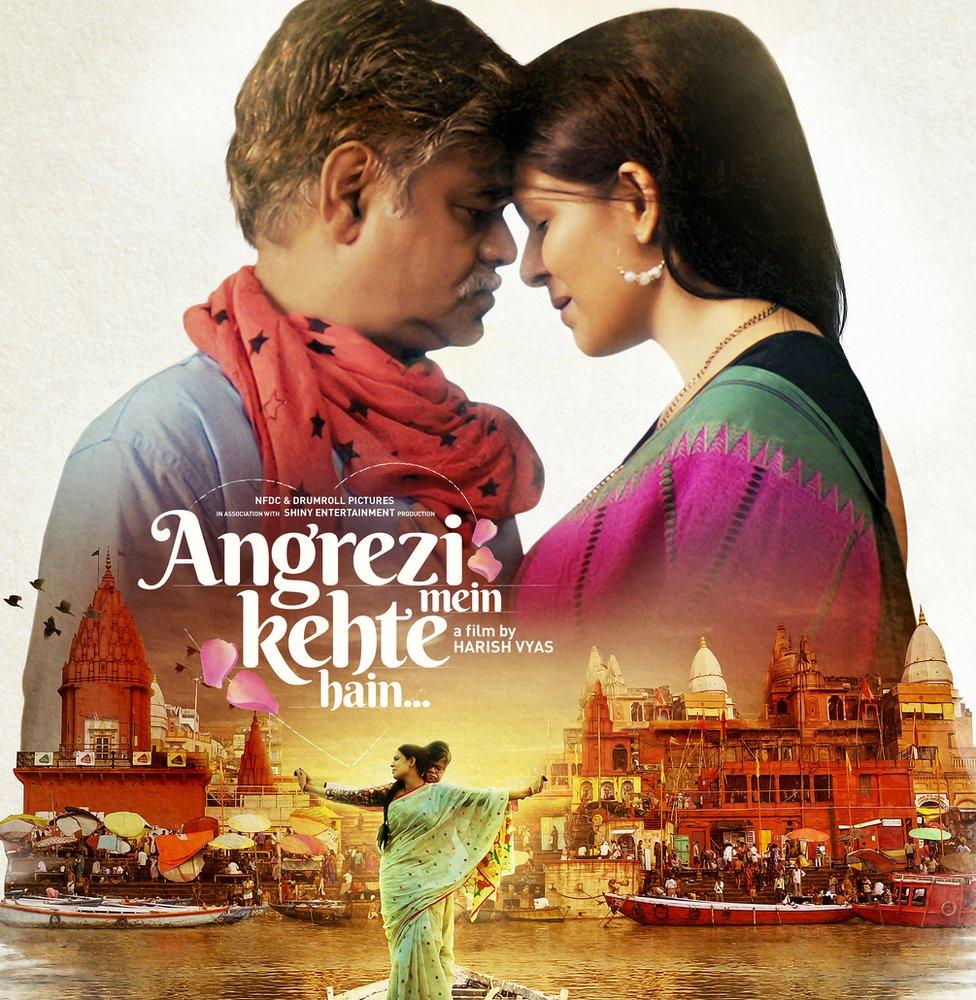
The movie is set in the holy town of Varanasi
Mishra told me that any relationship, including that between a wife and her husband, demanded an expression of love because life would be boring without it.
"There is an inherent problem in our families. Everyone is respectful of everyone, but there is little outward expression of love. Love, even if it's there, is like a bystander."
In the film, Batra eventually realises his mistake that he has never told his wife how he felt about her, and that she looks beautiful or that he enjoys her cooking. He discovers that he simply takes her for granted.
Perhaps this is because public displays of affection are often discouraged in India.
Mishra said it's also because everything becomes a habit over time. "For a wife, all of this can become a routine - serving your favourite food, taking care of others' needs. And slowly you just start taking each other for granted. Everything becomes a routine."
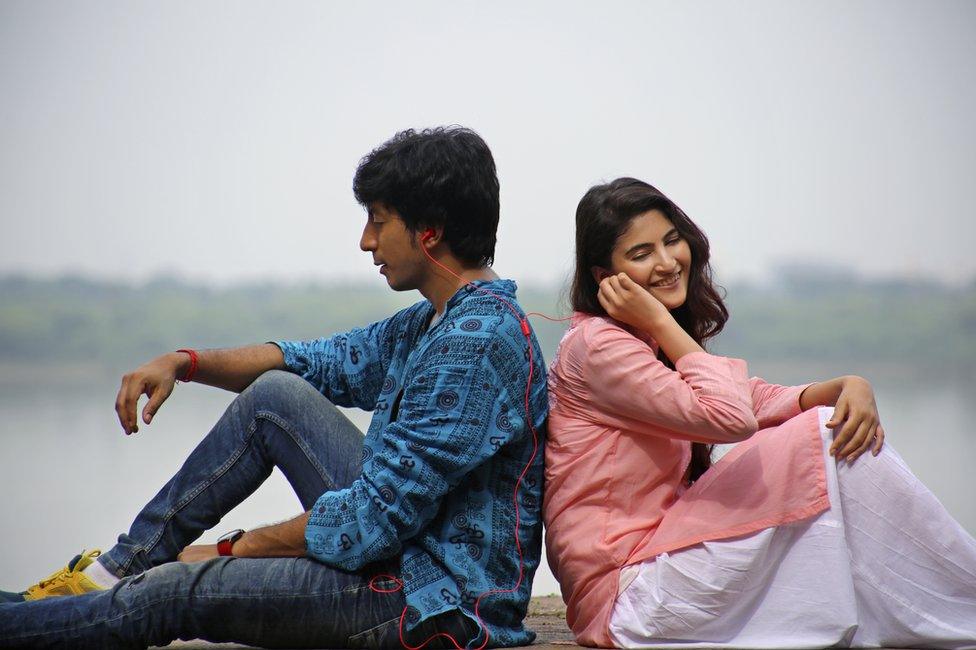
Batra's daughter and son-in-law help him win over his wife
There are also those who disagree with Mishra and consider public display of affection an "un-Indian" characteristic. But most people seem to hold the opposite point of view.
"It could be hesitation or reluctance that stops people from expressing love when they reach a certain age," one person wrote in response to my questions about the film. "I think you still have feelings, you still feel passionate, it doesn't matter how old you are. But perhaps societal boundaries stop you from displaying those emotions."
But the movie also acknowledges that there is a generation gap - younger couples are far more comfortable with expressing affection than their parents were at the same age. Mishra earns his wife's love with the help of his daughter and son-in-law, who are happy to share their wisdom.
When I met Anshuman Jha, the actor who plays the son-in-law, after the film's screening, he said, "If love is forever, then why should it have an expiry date?".
- Published8 July 2018
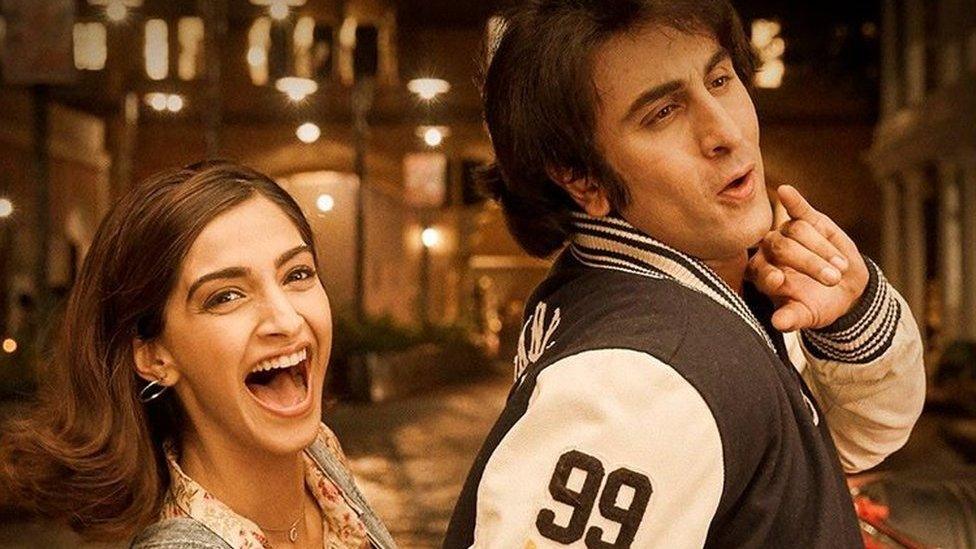
- Published12 June 2018
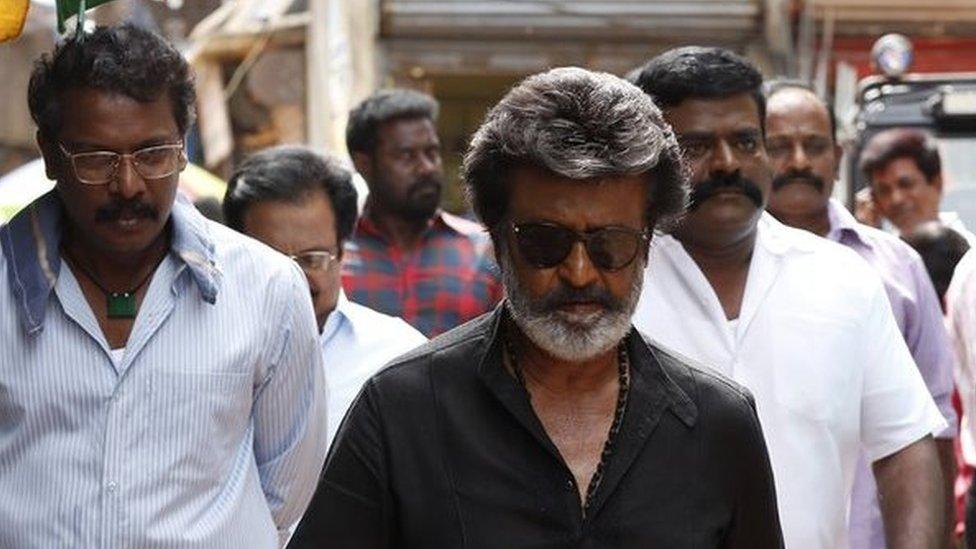
- Published7 June 2016
